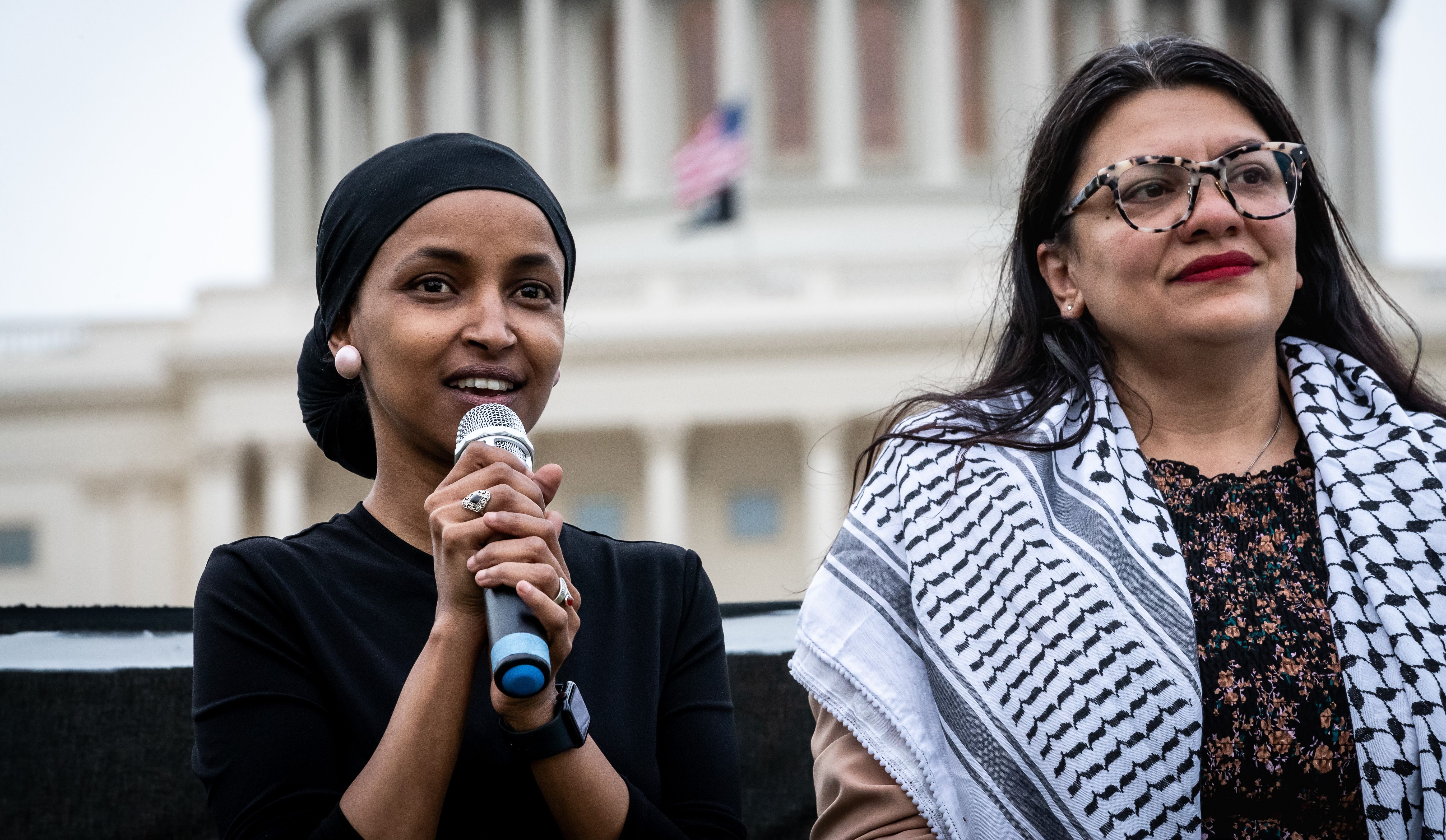America’s most influential pro-Israel lobby group, AIPAC, has been boasting about its success in recent congressional primary elections. Rep. Cori Bush’s (D-Mo.) loss on August 6 was the second instance of a so-called “squad” member losing their primary against an AIPAC-backed candidate this election season, following Rep. Jamal Bowman’s (D-N.Y.) defeat on June 25.
AIPAC and its partners have spent over $24 million so far this year to influence elections and has enjoyed a series of successes all summer, bragging on X that 100% of the Democratic candidates it endorsed have so far won their primaries, a narrative that may cause many aspiring politicians to see AIPAC as a force they cannot afford to cross.
But that may be more a function of AIPAC simply opting not to intervene in races in which it is unlikely to win, even if it means allowing critics of the U.S.-Israel relationship to coast to victory.
Rep. Ilhan Omar’s (D-Minn.) primary this week, for example, appears to be a race that AIPAC would prefer not to call attention to. AIPAC hasn’t offered significant support to Omar’s Democratic challenger, former Minneapolis City Council member Don Samuels, who has pleaded for AIPAC’s assistance. And judging from AIPAC’s social media activity and public statements, the lobby group is largely signaling it has no interest in this race, which could unseat one of the most outspoken critics of U.S. arms transfers, foreign aid and political support for Israel in Congress today.
Indeed, at times, AIPAC has pulled the trigger and misfired. For example, Rep. Thomas Massie (R-Ky.) — a member of the House Liberty Caucus, and a strong defender of non-intervention overseas — has been critical of how much American aid goes to Israel, and other nations, and spoke out against anti-Semitism laws proposed in Congress this year as potential violations of the First Amendment’s free speech guarantees. AIPAC spent roughly $400,000 in an effort to defeat him in his primary in May. Rather than succumbing to AIPAC’s efforts, Massie trounced his opponent, pulling in over 75% of the vote.
A few Democrats who have criticized America’s relationship with Israel have also successfully dodged AIPAC’s wrath. It doesn’t appear that AIPAC tried to unseat Rep. Alexandria Ocasio-Cortez (D-N.Y.) during her first re-election campaign in 2020, perhaps realizing it would be a lost cause and thus tarnish its stellar endorsement record. Ocasio-Cortez won almost 75% of the vote in her 2020 primary, went unchallenged in 2022, and won 82% in the 2024 primary.
Another strong critic of Israel is Rep. Rashida Tlaib (D-Mich.). Tlaib, who won her first race in 2018, was the first Palestinian-American to be elected to the United States Congress. Detroit City Councilwoman Brenda Jones challenged Rep. Tlaib’s first reelection campaign during the 2020 primary, but Tlaib won the nomination with over 66% of the vote, despite AIPAC spending more than $600,000 in an effort to defeat her.
Tlaib defeated three other candidates in 2022 with almost 64% of the vote. One of her challengers that year, Janice Winfrew, received support from AIPAC, as well as from a new organization largely funded by out-of-state billionaire pro-Israel donors, the Urban Empowerment Action PAC. After her victories in 2020 and 2022, Tlaib ran unopposed in 2024 and appears to be on a safe glidepath to another term, with no AIPAC intervention, in November.
Omar used to be a big target of AIPAC. Americans for Tomorrow’s Future, an AIPAC-connected PAC, spent around $2.5 million trying to defeat her during her first reelection campaign in 2020, but she still won 58% of the vote. The 2022 Democratic primary would prove to be much more competitive — in that case, Omar won by just two percentage points against Don Samuels, the former Minneapolis city council member who is also running against her this year. United Democracy Project, an AIPAC-connected group, quietly spent $350,000 via a shadowy group, Make a Difference MN, to assist Samuels in the final weeks of that campaign which ultimately proved ineffective. UDP is a group largely funded by pro-Israel Republicans seeking to influence Demoratic primary races.
Over the past week, however, mysterious anti-Omar mailers have shown up in her district, sent by Make a Difference MN. The group has spent around $90,000 on anti-Omar mailers in the last days of the primary this week, an amount that is unlikely to affect the election outcome.
AIPAC does like to brag about its successes, and will largely persist in endorsing candidates who criticize Israel in ways that AIPAC considers too harsh or too effective. But in choosing not to invest heavily to defeat Omar, apparently to avoid an embarrassing loss, it seems that the purportedly all-powerful pro-Israel lobby group knows its limits.
The electoral victories of Reps. Massie, Omar, Tlaib, and Ocasio-Cortez should offer some hope to lawmakers who, for example, do not believe that the U.S. should continue providing billions of dollars in aid to Israel without conditions. Perhaps AIPAC isn’t so invincible afterall.















